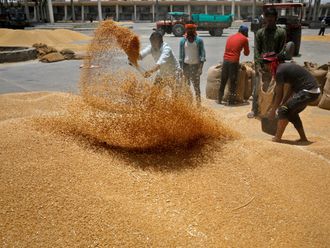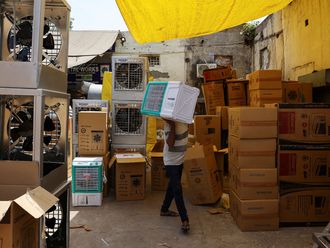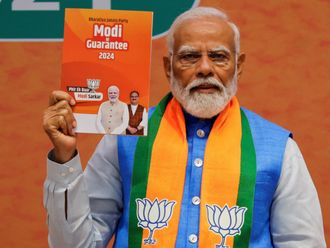NEW DELHI: India’s western state of Rajasthan on Tuesday deferred until next year a measure requiring government permission for the publication of details regarding judges and public servants who face accusations over action taken in the course of their duty.
The measure, which prescribes jail terms of up to two years for violations, aimed to minimise frivolous complaints against officials, said the government of the state, ruled by Prime Minister Narendra Modi’s Hindu nationalist party.
In recent years many journalists reporting corruption and attacks on minorities in India have complained of being targeted by online smear campaigns, although there have been no reports of measures elsewhere similar to what Rajasthan proposed.
The Editors’ Guild of India and the opposition Congress party called Rajasthan’s move an attempt to curb media freedom and shield corrupt individuals, criticisms that forced the state to delay discussion on the bill.
“The government has agreed to refer the bill to a panel of legislature members,” a state government spokesman told Reuters by telephone, adding that the bill could be introduced, following amendments, in the next assembly session early next year.
When introduced this week in the state assembly, it set a six-month deadline for courts to secure the government’s permission for any investigations into the actions of judges, magistrates or public servants.
In the absence of such permission, it also sought to block publication of the identity, or other personal, or family details of those being investigated.
“No one shall print or publish, or publicise in any manner, the name, address, photograph, family details, or any other particulars which may lead to disclosure of identity of a judge or magistrate or a public servant,” it added. The bill’s passage by the state legislature would have helped turn into law an executive decree on the subject issued in September that would otherwise have lapsed within six months.
When asked about the status of the decree, the state government spokesman declined to comment.
Rajasthan was only trying to “shield honest officers so that they can perform their duty”, Indian Law Minister Ravi Shankar Prasad told reporters on Monday, but declined further comment, saying it was a state matter.
India has slipped three places to 136 in the 2017 world press freedom rankings of 180 countries, amid growing “self-censorship” and attacks by right-wing groups. In a statement, Raj Chengappa, president of the Editors’ Guild of India, described the Rajasthan bill as “a pernicious instrument to harass the media, hide wrongful acts by government servants and drastically curb the freedom of the press”.












